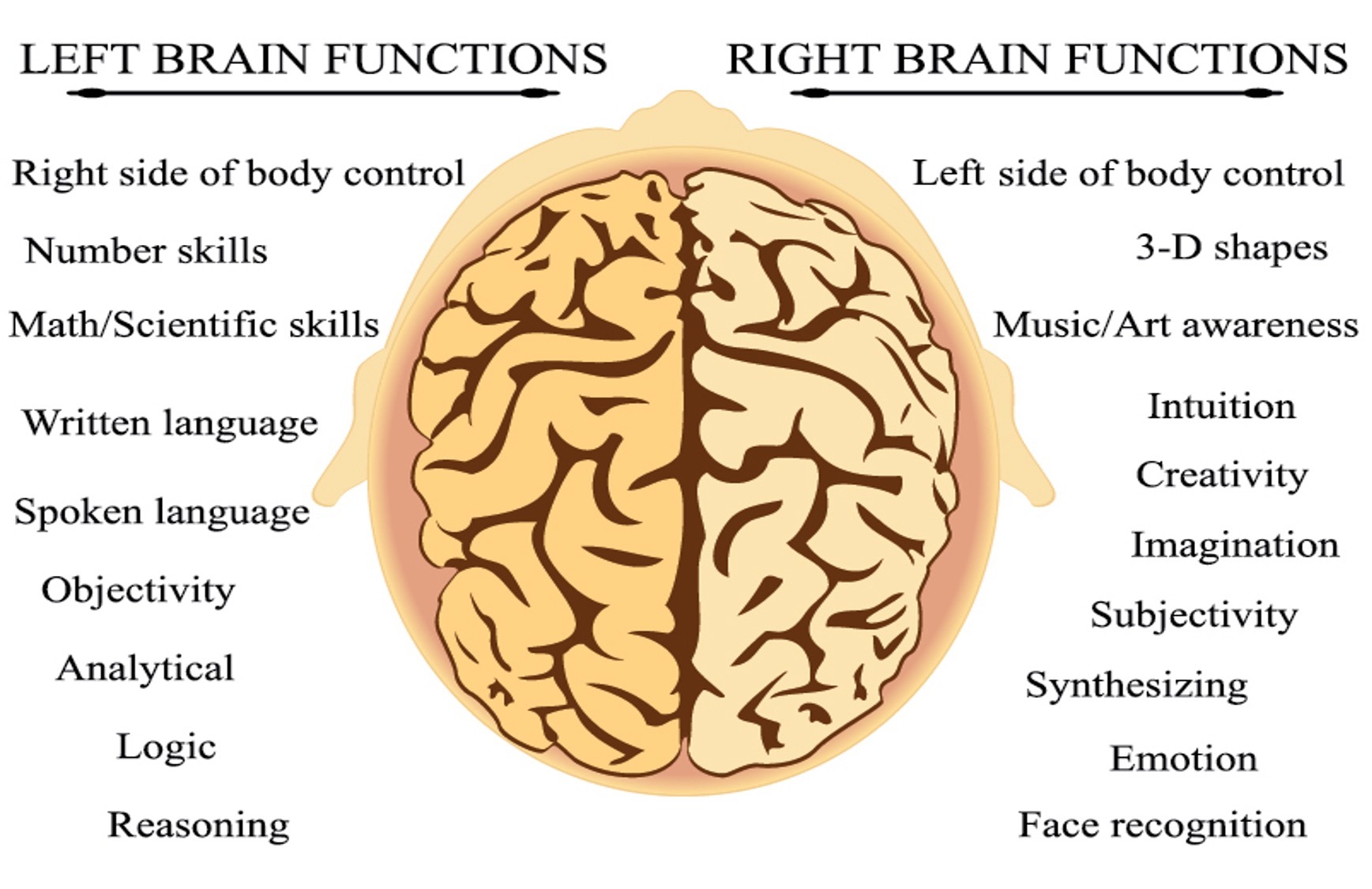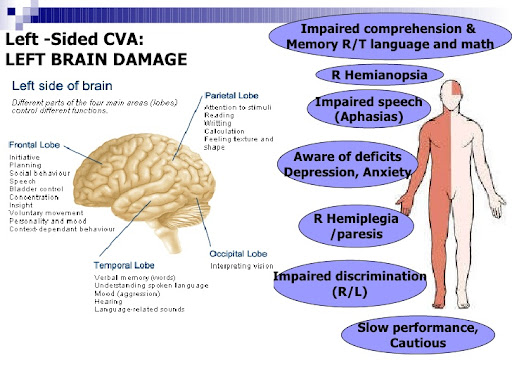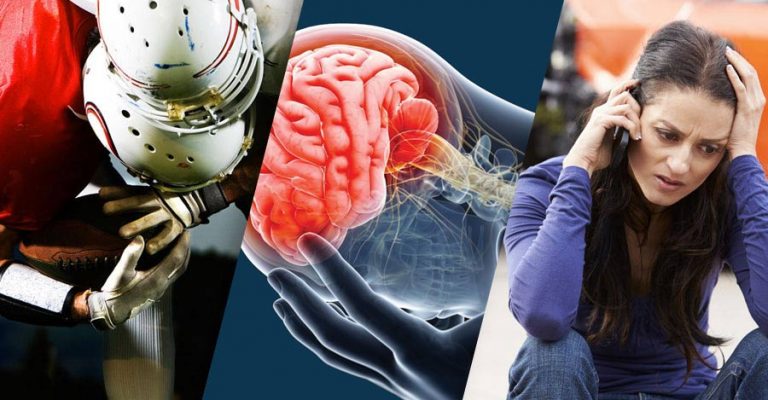Suppose there is damage to the left half of your brain. In that case, it will likely indicate that you have problems with your language and thinking skills, among other consequences. If you realize the potential outcomes that may occur from damage to the left side of your brain, you will no doubt be much better able to identify any problems earlier.
This will then lay the ground for receiving timely interventions and management strategies, securing the best possible results. So, it does not only mean understanding the issues. More importantly, this understanding should lead to taking active steps that can make a lot of difference to your future health.
Functions of the Left Hemisphere
To fully comprehend this, it is essential to list how the brain functions. The brain controls all physiological and psychological functions as the central commanding unit.
Although the human brain is very complex in structure, it is divided into two unique halves. These halves are simply called the left and right hemispheres. Each one of these sectors controls functions that occur on the opposite side of the body. More specifically, the brain’s left hemisphere regulates the actions of the right side of the body and vice versa—it’s quite an interesting concept.
Exploring the hemisphere’s functions, the right side is responsible for nonverbal, intuitive, and artistic functions, like music and art. The left hemisphere also controls verbal, analytical, and logical processes. How the brain separates these functions is surely an intriguing matter.

Diagnosis of TBI
Characteristics of the Left Brain Hemisphere
Your left brain half is the command center for several critical functions. These functions include:
- Engaging in logical thought and reasoning
- Analytical Thinking
- To understand language and to speak
- You control every moment of the right side of the body and
- Thinking in a sequential or stepwise manner.
Therefore, it is not surprising that this part of the brain is quite famous as the “language hub.” This is mainly due to the active role that the brain plays in language formation and comprehension. Consequently, any impairment in this part of the brain may lead to some deficiency in speech or language.
Knowing the little function of the brain’s left hemisphere, we shall now discuss what happens when the hemisphere gets damaged. However, it should be noted that each one of us has a uniquely structured brain, so our specific areas of function may not necessarily be the same as that of someone else.
Symptoms of Left Hemisphere Brain Damage
From traumatic brain injuries to strokes affecting the left hemisphere, there is a wide array of neurological injuries or disorders affecting the left part of the brain. The result of such damage can vary widely and depend on the exact location of the injury. The effects vary greatly from damage to the left hemisphere, including the potential to affect your movement abilities, cognitive prowess, and communication skills.
Let’s talk about a few of the common outcomes that you might see after injury to the left side of your brain:
Speech Impairment or Slurred Speech
There are several common speech impediments that result from damage to the left hemisphere of the brain. These are dysarthria and dysphagia. Basically, dysarthria is a condition where the muscles in the mouth and tongue affect a person, meaning they speak either slowly or in a slurred manner.
Dysphagia, on the other hand, is defined as some form of challenge in swallowing due to weakness or lack of control in the throat muscles, which are essential to the function. Interestingly, the two disorders are almost always present together because speaking involves most of the muscle groups that swallowing does.
If not treated in due course, dysphagia may eventually lead to severe complications, including choking, pneumonia, and malnutrition. It is, therefore, absolutely critical that you seek help from your rehabilitation team as symptoms present themselves.
Computational and Logical Matters
When damage occurs on the left side of the brain, it generally complicates carrying out mathematical operations and applying logical thinking. This may also negatively impact one’s ability to grasp abstract concepts and organize thoughts and actions in a systematic manner.
This is more so in those who have had damage to the left part of the brain, as they often cannot stick to any sequential thought. As a direct outcome, problem-solving becomes markedly more difficult, which in turn unravels a high level of frustration.
Besides this, injuries to the left side of the brain tend to impact other cognitive functions. They include:
- Power of Focus on Work
- Memory is the faculty of preserving and remembering facts, events, impressions, ideas, etc.
- Ability to collect and compile information in a systematic way
- Can organize activities and assignments according to relative importance
- Strategy development and planning skills that are relevant to the correct implementation of the duties
Aphasia
Aphasia is a disorder of language that has the potential to disrupt ideas about speaking and writing, usually very frustrating for those to whom it occurs. Many types of aphasia usually result from some form of damage to the left hemisphere of the brain. The three most common types are:
The first is called Broca’s aphasia, sometimes referred to in contrast with the other as “expressive” or “non-fluent” aphasia.” People who have this type of aphasia understand what is said to them but cannot get their thoughts out to speak them.
Sometimes, just getting the words out can be an effort for them, and their sentences may often be short and to the point, sometimes even whittled down to a one-word answer. Patients with Broca’s aphasia can still read but, often, silently; writing is generally a cumbersome task for them.
Then, there is Wernicke’s aphasia, in which speech is fluent, but the language is not comprehended. This is almost the opposite of Broca’s aphasia. In these patients, words can be produced with little problem, but understanding the language spoken by others is difficult.
They may not understand what is said, and their speech may be tangential and illogical. The rate and rhythm of speech usually are intact, but they speak rapidly. They may have difficulty with repetitions of words or phrases.
Right-sided Hemiparesis and Sensory Loss
The left hemisphere of your brain controls movements in the right part of your body. You are probably wondering by now how that is relevant. An insult to the left side of your brain usually affects functions on your right side. It manifests as ‘right-side weakness,’ hemiparesis, to be more specific.
As it progresses, it encompasses the entire right side, leaving it paralyzed. This sad state of affairs is called right-sided hemiplegia. You may wonder why this is so, and the explanation lies in a particular brain region: the primary motor cortex, which is part of the frontal lobe.
If you get damaged, especially on the left side of the primary motor cortex, there will be problems with movement on the right side of your body. For instance, a lesion in your left motor cortex would make you start to find it difficult to do the following:
- Lift your right hand
- Move the fingers of your right hand
- Take control of the right half of your face or even
This indicates that the patient has balancing problems and a weak right leg, which he cannot walk upright. The more severe the injury that goes all the way up to your internal capsule or somatosensory cortex on the left side of your brain, the worse the effects.
In fact, you might lose all sensation on your right side, interpreted as numbness or even pins-and-needles sensation or loss of proprioception, among other sensory deficits. But that’s not the end of it.
Now, you can attempt physiotherapy exercises targeting the muscles affected. This way, you send a stimulus to your brain, prompting adaptative changes in your neural pathways. There is also a therapeutic technique called sensory reeducation, which is very effective for regaining lost sensations, especially after a left-side brain injury like a stroke.
Speech Apraxia
Sometimes, communication problems are not strictly due to aphasia. If damage occurs to the left brain, the left can lose contact with the facial muscles, which causes a different kind of disorder known as verbal apraxia or, more formally, apraxia of speech.
With verbal apraxia, the brain struggles to map out and coordinate speech movements. This condition can make it very hard to shape and voice words properly—just as if one were trying to play a difficult piece of music without knowing how the notes go.
This takes place even when you do not actually have weak muscles in your muscles needed to produce speech, and you fully understand the words you want to speak. Think that you have the perfect speech in your head, but things just don’t come out right when you try to give the words. In simple terms, this is what it can feel like to experience apraxia of speech.

To Sum Up
Damage to the left hemisphere can lead to a catastrophic loss of many cognitive and communicative abilities. From difficulties with problem-solving and memory to challenges with language comprehension and speech production, the effects of such injuries can be far-reaching and frustrating for individuals.
Advantages of Adderall In TBI Patients
Chemicals such as dopamine expand mood, concentration, and motivation, which scientists often call “feel-good” chemicals in increasing or boosting. This kind of loss, however, indicates that in brain injuries, there is a significant loss of dopamine receptors in patients.
However, Adderall may help by increasing the amount of dopamine available to the level that a TBI patient could utilize more. This, in turn, can boost a person’s motivation and concentration. Researchers from Brown University have even suggested that Adderall might help people focus more on the positive aspects of work.
This will be very useful for TBI survivors, where Adderall will help them persist with home therapy, an aspect that many patients traditionally find very tiring. Another study proved that Adderall increases memory and processing rates in TBI patients. However, Adderall interacts in the frontal lobe to stimulate it and keep TBI patients alert, especially those who struggle with cognitive fatigue.
Adderall Side Effects
Adderall side effects that tend to be common include:
- Anxiogenic
- Stomach
- Rapid heart rate
- Sleeplessness
- Fearfulness
- Headaches
- Vertigo
- Loss of the appetite
Finally, as a stimulant, Adderall has the potential for habituation. Therefore, following your doctor’s advice and never taking more than is prescribed is very important.
Is Adderall’s Amphetamine Dangerous?
First, one should note that Adderall does contain amphetamine salts, which are addictive. But the bright side is that pharmacies intentionally mix the amphetamines with other ingredients to dilute their strength, making it much safer than street drug derivatives with the same ingredients. But we cannot forget, for instance, that in some cases, Adderall can still be addictive, particularly with a history of substance use.
Drug Interactions
Drugs that can experience interactions with Adderall may result in a reduction of the efficacy of the drug, affect the time of action, increase side effects, or decrease their action when taken together with Adderall.
There is no need to discontinue a drug just because there is an interaction between the two drugs; it may really be necessary in some cases, though. The best way is to have a talk with your health provider on the proper way to go about any possible drug interactions.
There are overall drug interactions with Adderall. They include:
- Blood thinners, for example, warfarin, as well as other drugs with blood thinning qualities, such as aspirin or NSAIDs.
- Drugs controlling seizures, for instance, phenytoin, phenobarbital, or primidone.
- Antidepressants such as tricyclic antidepressants like amitriptyline, monoamine oxidase inhibitors like isocarboxazid, phenelzine, and tranylcypromine, or SSRIs like fluoxetine and sertraline.
- Antipsychotic drugs consist of butyrophenones, phenothiazines, thioxanthenes, and atypical ones like olanzapine, quetiapine, and ziprasidone.
- Any medication inducing drowsiness, like benzodiazepines, for example, diazepam, lorazepam, first-generation antihistamines like doxylamine or promethazine, metoclopramide, or opioids like codeine, morphine.
Bottomline
It is strongly recommended to stay away from any alcoholic drink or consumption of any illegal or recreational drugs when taking Adderall. So, always get a prescription from your doctor before using Adderall or any other medication.

